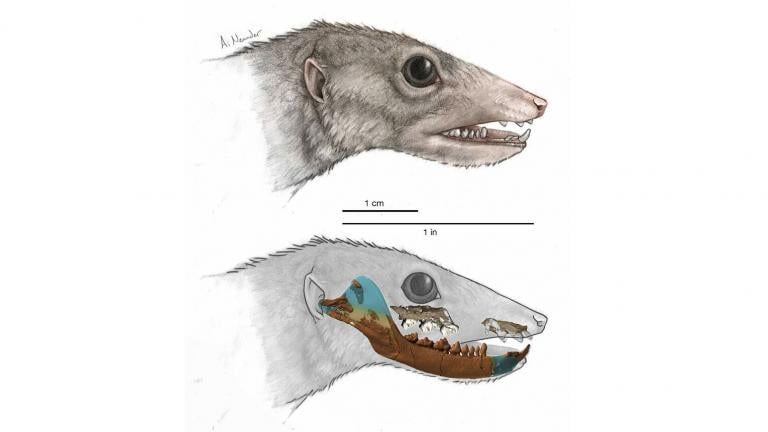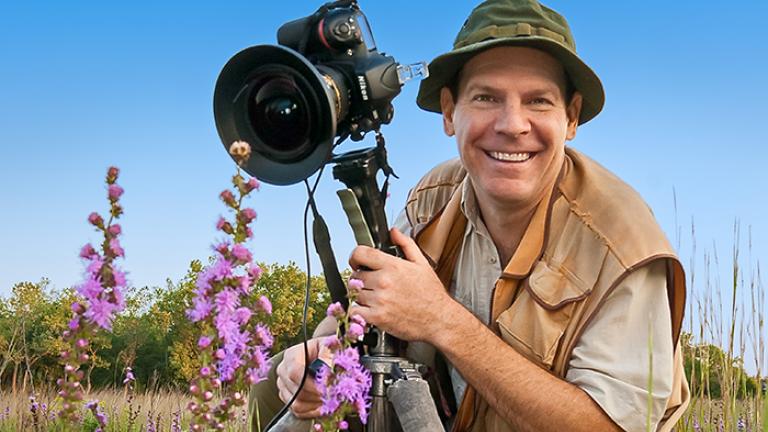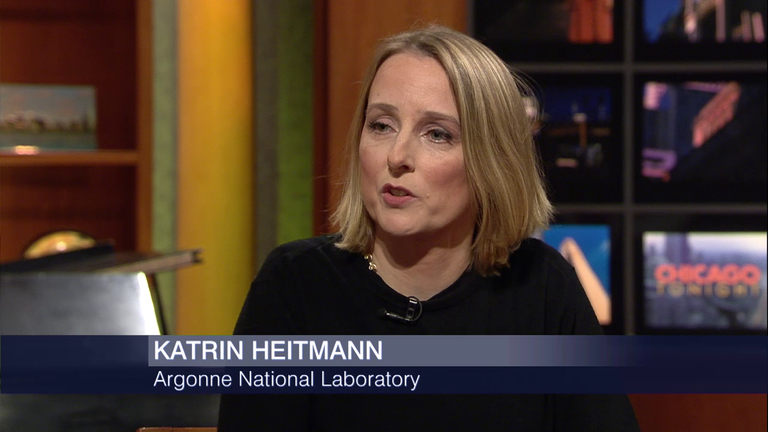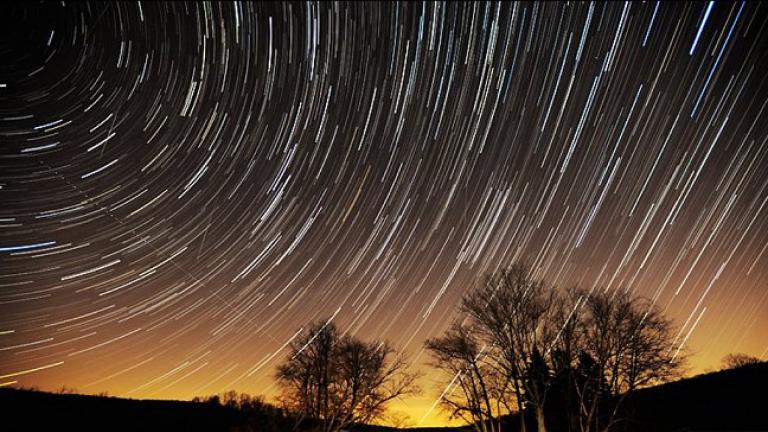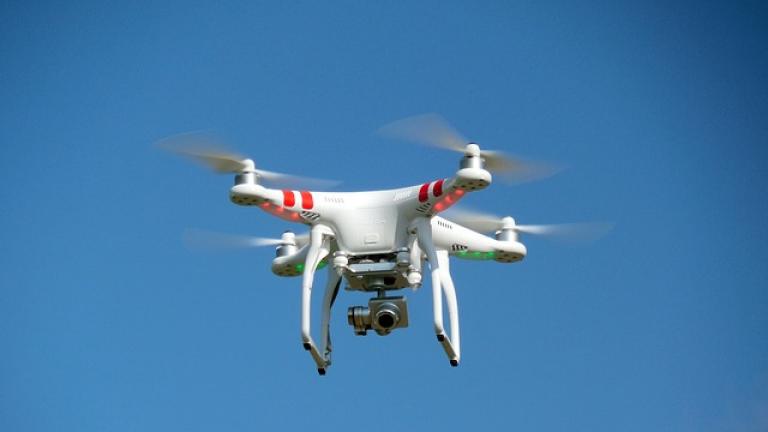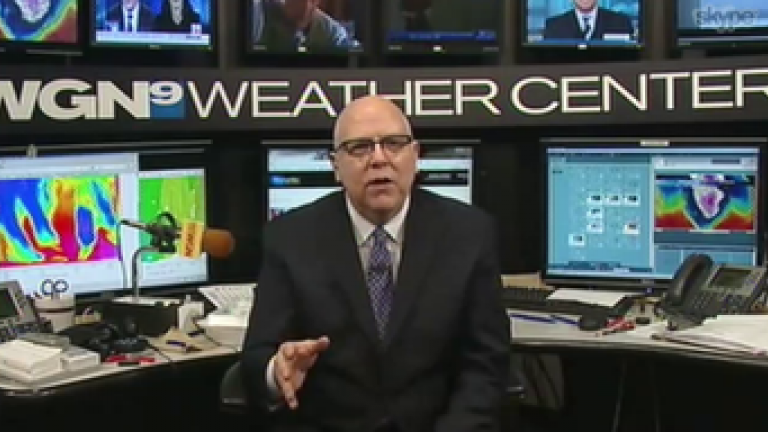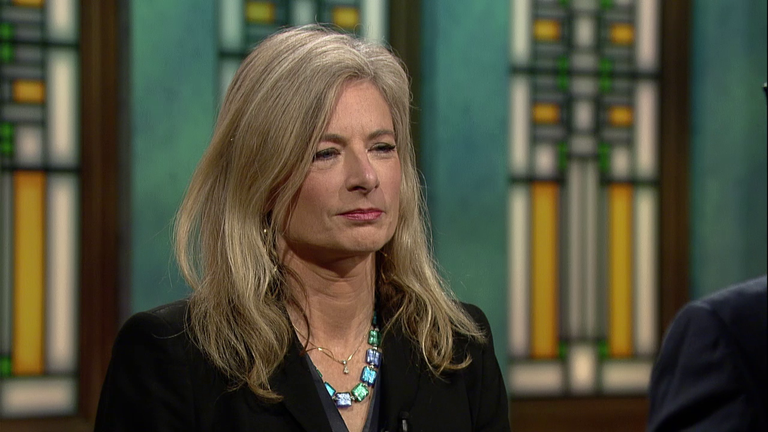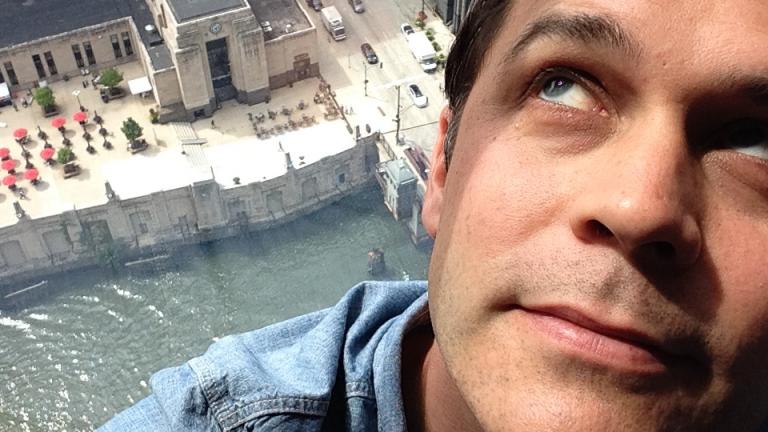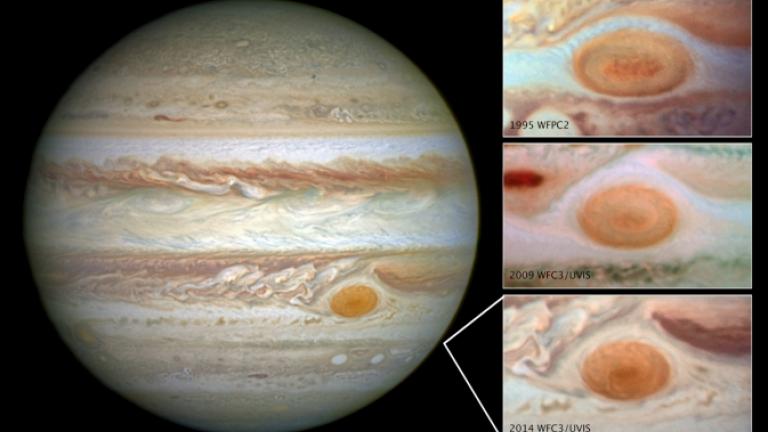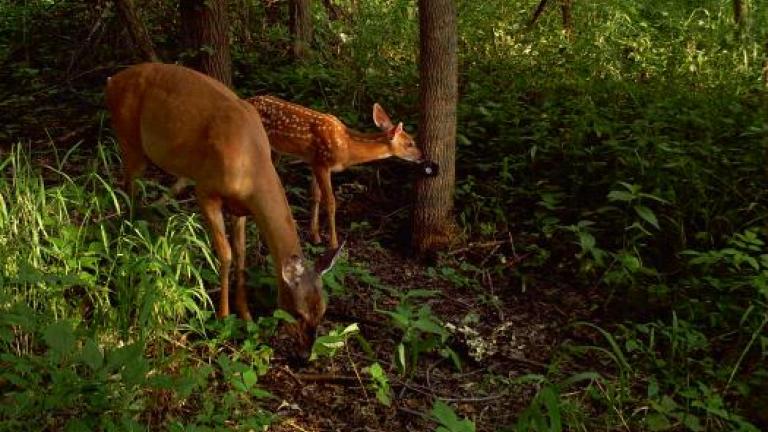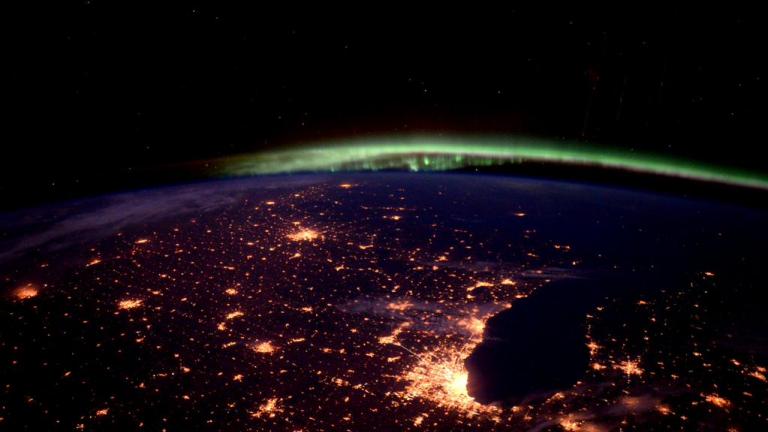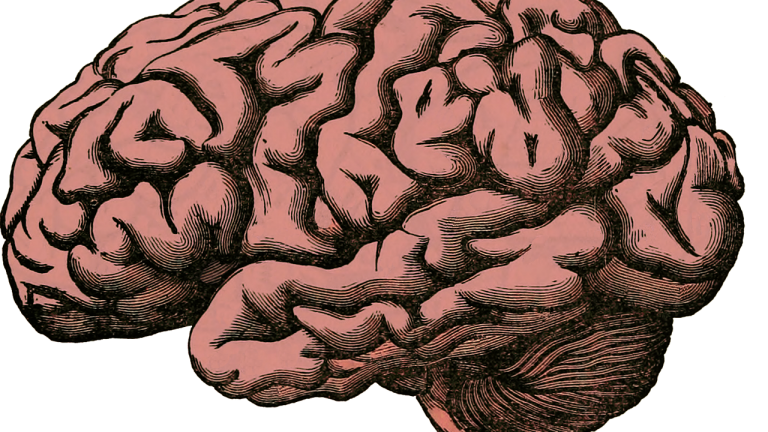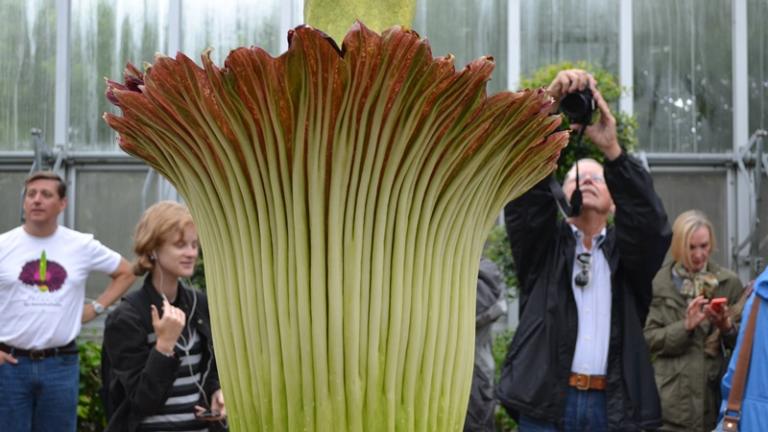Science & Nature
A new high-tech analysis of the fossilized jaw bone of Haramiyavia clemmenseni, one of our earliest ancestors, is shedding new light on the mammalian family tree. University of Chicago paleontologist Neil Shubin was one of the lead authors of the study and he joins us in studio to talk us through the findings.
A breathtaking new book of photos captures the wild and natural wonders of Chicago. Meet the photographer and see some of his stunning work.
It raked in nearly $250 million in its first weekend, garnering critical acclaim along the way. "Star Wars: The Force Awakens" is well on its way to becoming the highest-grossing movie of all time. Tonight, we revisit a 2013 "Chicago Tonight" report that introduced viewers to the Chicago computer scientists who helped make some key special effects in the very first "Star Wars" movie.
Simulating the evolution of the cosmos. A local physicist is here to talk about using supercomputers to delve into the mysteries of the universe.
With an average of 60 to 70 meteors per hour and roughly one or two sightings per minute during its peak, the Geminids offers the most abundant, reliable meteor show of the year. Find out when to turn your eyes to the sky.
The drones are coming, and on Thursday the City Council debated new rules on where and when they can fly in Chicago. Paris Schutz has the details.
WGN meteorologist Tom Skilling tells us how a huge El Nino in the works could affect the upcoming winter.
Dark matter: we can't see it, but it's believed to make up 85 percent of all matter in the universe and without it we almost certainly wouldn't be here. Particle physicist and New York Times bestselling author Lisa Randall joins us to discuss her new book "Dark Matter and the Dinosaurs: The Astounding Interconnectedness of the Universe."
Chicago is not defined solely by its human residents. It’s a city with a living, evolving "ecological web of interactions" between man and animal, according to Gavin Van Horn. He joins "Chicago Tonight" to talk about "City Creatures," a book which details urban wildlife history through essays, poetry, photography and paintings.
What can a mutant fruit fly can tell us about sleep? Why might forests in Alaska be contributing to climate change? And is Jupiter's Great Red Spot shrinking? University of Chicago paleontologist Neil Shubin is back to discuss these stories and more.
A new baseball statistic that could help the Chicago Cubs win, a new tool that could revolutionize the surgical removal of cancerous tumors and new images of Pluto and its largest moon, Charon. Museum of Science and Industry director of science and integrated strategies Rabiah Mayas joins us with these stories and more.
Heavily cited throughout the federal indictment against former CPS CEO Barbara Byrd-Bennett are emails outlining the alleged kickback scheme tied to the controversial $20.5 million no-bid contract awarded to SUPES Academy. Tonight we’ll talk about the misconceptions and myths of email with Jeffrey Cramer, a former federal prosecutor who now heads the Chicago office of security firm Kroll.
When we think wildlife, most of us think national parks and far-off forests. But an interactive science project called Chicago Wildlife Watch wants to show us that wildlife is, quite literally, right in our own backyards and outside our high-rise balconies. Seth Magle, director of the Urban Wildlife Institute at the Lincoln Park Zoo, tells us about Chicago Wildlife Watch and how we can all answer the call of the wild.
American astronaut Scott Kelly has allowed the human race an opportunity to live vicariously through his #YearInSpace travels by sending global images back to Earth through his Twitter and Instagram feeds. Sent from day 189 of his 12-month mission, Kelly shared this astonishing nighttime view of Chicago from space on Oct. 2.
An ambitious new government-led research initiative aims to fully map the human brain. The goal is to advance understanding of how the brain works and develop treatments for crippling neurological diseases. But for researchers, the Holy Grail is to understand the origins of human consciousness. Two leading neuroscientists join us to talk about this potentially groundbreaking project.
There was no public countdown, no fanfare this time. And yet, a corpse flower is blooming – right now – at the Chicago Botanic Garden. Watch a livestream of the rare event.

